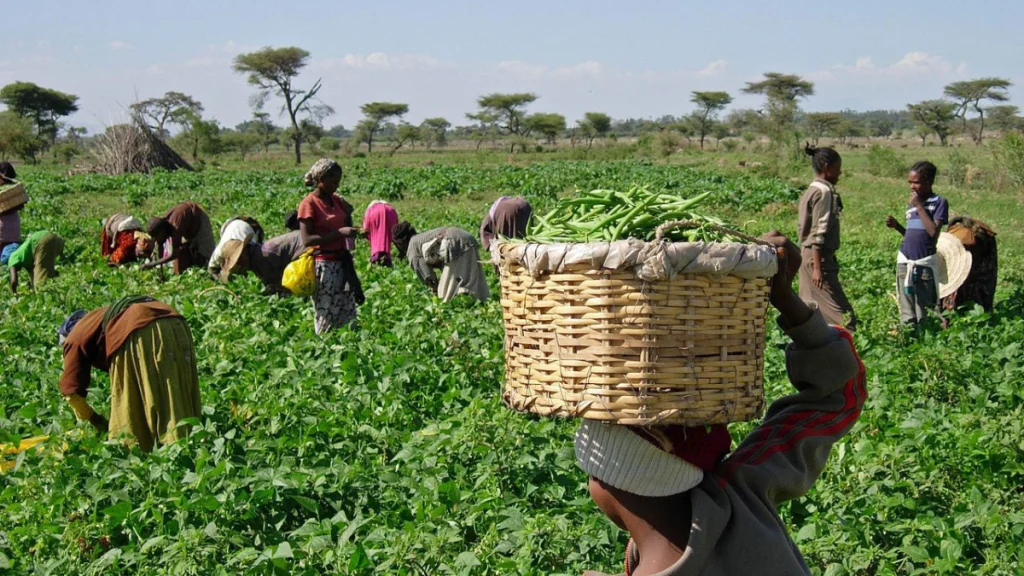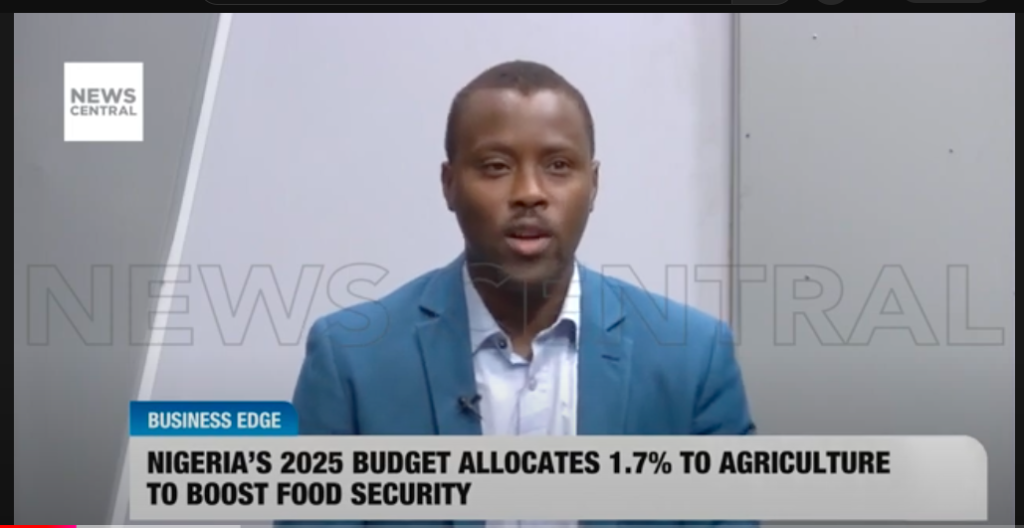Chief Visionary Officer of Awesome Continental Adetiloye Aiyeola has contributed his thoughts on Nigeria’s agricultural budget for 2025.

According to Awesome Continental’s Chief Visionary Officer, who appeared on Business Edge on News Central TV, the budget does not meet the Maputo declaration which mandates 10% of GDP allocation to agriculture.
He stated, “With this budget, I don’t see us developing our agro-industrial base.”
In the Maputo Declaration on Agriculture and Food Security, African leaders pledged to devote a minimum of 10% of their national budgets to rural development and agriculture. At the African Union’s Second Ordinary Assembly in Maputo, Mozambique, in July 2003, the declaration was approved.
The proclamation also calls for yearly agricultural growth of at least 6%.To assist nations in achieving these objectives, the Comprehensive Africa Agriculture Development Programme (CAADP) of the African Union was created. The objectives of the CAADP are to raise incomes, create jobs, and enhance nutrition and food security.
Regarding the expansion of Nigeria’s agro-industrial basis, Aiyeola believes that the country’s economy depends heavily on agriculture for wealth development. In addition to giving over 70% of the workforce substantial employment, particularly in rural regions, it also makes a substantial contribution to Nigeria’s GDP.

“Effectiveness and efficiency must be the main considerations while examining agriculture. Numerous businesses in the private sector are very eager to enter the agriculture market. They can give it some serious thought, though, when they observe the dearth of infrastructure—something that the government alone can supply.
“The government is necessary to address the core issues facing agriculture, such as logistics and storage infrastructure, roads, and an effective distribution network, as well as to fight insecurity, particularly in isolated rural areas.
“Though I believe we are all prepared, the government needs to establish a suitable ecosystem so we can test it out. The private sector, on the other hand, has the primary task of establishing and growing the agricultural basis,” he said.
Aiyeola shared his thoughts on President Bola Tinibu’s vision for food security in the 2025 budget, stating that everyone has the right to food and that no one should have to go hungry.
“I’m happy that the government is beginning to take the issue of what our nation’s food architecture and food security should look like seriously.
“No one needs to go hungry, and we are very happy that they are beginning to take notice.”
He stated, “I think it is commendable that they are increasing the budget that goes into agriculture after looking at the allocation, which is over 100 per cent higher than 362.94 billion Naira in 2024 and 2308.4 billion Naira in 2023, and we are also seeing the capital allocations rising by 130 per cent compared to last year.” It is still insufficient, though. Spending wisely is more important than increasing spending.
“I am happy that this government is taking note of what we have always been discussing, and when I say spending wisely, I mean things like the post-harvest operation.
“Food production was the main focus in the past, but I believe that Nigeria’s problem is with food distribution rather than food production.
“I look forward to a Nigeria where the government and all stakeholders involved can pull their weight to ensure that we have a more industrialised agricultural system,” the author says. Nigeria can escape poverty by doing that.
“Food security and agriculture encompass more than just farming; they also involve the development of trade, roads to markets, distribution networks, storage, logistics, and infrastructure.
“Even if the 2% allotted is a considerable increase over the budget from the previous year, I do not believe it will bring us to the promised land where no citizen would ever go hungry. I believe there is still a great deal of work to be done.
“I think a lot of attention needs to be paid to what happens after harvest; this is very critical,” he added, outlining his suggestions for actions the country can take to become more industrialised.
“I am aware that the government works hard to help farmers and food production, but I believe that now is the ideal moment to help aggregators, food processors, and logistics service providers, among other participants in the value chain. I believe that more money needs to be spent on storage; I haven’t seen that defined rigorously, but we must have a strong storage system.”
Watch more here


